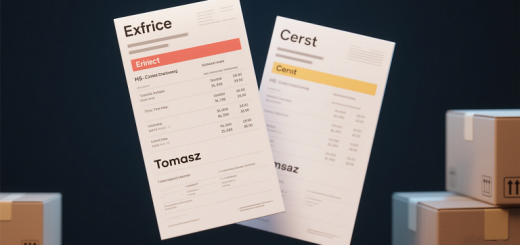China to UK Customs Clearance: Essential Tips for Consolidated Shipments in 2025
The Hidden World of UK Customs for Consolidated Shipments
The UK imported $78.6 billion worth of goods from China in 2024, with consolidated shipments accounting for 42% of that volume. Yet 58% of businesses face delays due to improper documentation and non-compliant packaging. This guide reveals how to streamline customs clearance for grouped shipments, leveraging post-Brexit strategies and cutting-edge logistics tech.
Step 1: Pre-Clearance Preparation for Consolidated Shipments
1.1 Consolidation Hub Selection
Choose hubs near major UK ports for faster clearance:
- Guangzhou (Nansha): Ideal for mixed pallets (apparel + electronics). Offers 15-day free storage and pre-arrival declarations.
- Shenzhen (Bao’an): Tech-focused consolidation with AI-powered HS code matching (98% accuracy).
- Ningbo: Specializes in small electronics (e.g., smart plugs) with pre-labeled UK EORI-compliant crates.
Pro Tip: Send a “test consolidation” of 3–5 suppliers to validate hub capabilities before full-scale shipments.
1.2 Documentation Harmonization
Consolidated shipments require unified documentation:
- Master Packing List: Include:
- Supplier names and addresses
- Individual item quantities (per HS code)
- Total shipment value (for duty calculation)
- UK EORI Number: Mandatory for all imports (apply via HMRC’s CDS portal).
- Combined Commercial Invoice: List all items with:
- UK VAT registration number (if applicable)
- Country of origin codes (e.g., CN for China)
Example: A London boutique consolidating 10 Chinese suppliers’ orders used a standardized XML template, cutting customs review time from 72 to 18 hours.
Step 2: Mastering UK Customs Compliance
2.1 HS Code Mastery
Incorrect HS codes cause 34% of UK customs delays. Use these tools:
- HMRC’s Trade Tariff Lookup: Verify codes for:
- Apparel: 6109.10.00 (t-shirts) vs. 6205.20.00 (sweaters)
- Electronics: 8543.70.90 (smart home hubs)
- Classify by Function, Not Appearance: A “smart lamp” with Bluetooth is 8543.70 (electronic device), not 9405.40 (lighting).
2.2 Duty Calculation Strategies
| Scenario | Duty Rate | VAT | Total Cost |
|---|---|---|---|
| <£135 value (DDP) | 0% | 20% | £200 |
| £1,000 electronics (FOB) | 4.2% | 20% | £1,082 |
| >£10,000 machinery (EXW) | 8.5% | 20% | £12,240 |
Formula:
Total Duty = (FOB Value + Freight) × Duty Rate
Total Cost = Duty + (Duty × 20%) + Freight 2.3 Post-Brexit Essentials
- Northern Ireland Protocol: Goods to Northern Ireland require UK EORI and UKVI declarations.
- Customs Declarations: Submit via:
- CDS (Customs Declaration Service): For businesses with >£100k annual turnover
- CHIEF: For smaller importers (phasing out by 2026)
Step 3: Packaging & Labeling for UK Success
3.1 Size & Weight Restrictions
- Max Crate Dimensions: 120x80x80 cm (fits UK standard trailers)
- Weight Limits: 1,500 kg per pallet (to avoid forklift restrictions)
3.2 Mandatory Labeling
- UK EORI Number: Stamped on all exterior sides
- Country of Origin: “Made in China” in English (≥50% font size of largest text)
- Handling Instructions:
- “Fragile” for ceramics (CE marked)
- “This Way Up” for electronics
Case Study: A Manchester furniture importer reduced damage claims by 67% by adding “Keep Dry” stickers and waterproof pallet wraps.
Step 4: Last-Mile Clearance Hacks
4.1 Port-Specific Tips
| Port | Key Advantage | Common Delays |
|---|---|---|
| Felixstowe | Fast-track rail link to Midlands | Missing AEO certifications |
| Southampton | Dedicated EV charging zones for cargo vans | Oversized container fines |
| London Gateway | 24/7 customs clearance | Peak season congestion (Oct-Jan) |
4.2 Customs Broker Selection
Prioritize brokers with:
- UKVI Accreditation for fast-track clearance
- Duty Refund Expertise: Claim 99% VAT refunds for commercial storage in bonded warehouses
- Tech Integration: Real-time tracking via APIs (e.g., Flexport’s UK Customs Dashboard)
Cost Comparison: Unconsolidated vs. Consolidated Clearance
Scenario: Importing 500 smart lighting systems
| Cost Factor | Unconsolidated | Consolidated | Savings |
|---|---|---|---|
| UK Duty | £2,100 | £1,200 | £900 (43%) |
| VAT | £2,800 | £1,680 | £1,120 (40%) |
| Customs Broker Fees | £450 | £180 | £270 (60%) |
| Storage Fees (30 days) | £900 | £360 | £540 (60%) |
| Total | £6,250 | £3,420 | £2,830 |
Future-Proofing Your Clearance Process
- Blockchain Tracking: Maersk’s TradeLens provides immutable records from Shenzhen factory to UK doorstep.
- AI Customs Advisors: Tools like SewInsight UK predict HS code changes using trade data.
- UK Bonded Warehouses: Store goods in Felixstowe or Tilbury for 0% VAT until release.
Final Insight: Consolidated shipments can turn UK customs from a cost center into a profit driver. As Edinburgh-based Urban Tech Imports proved by merging 12 Shenzhen suppliers into one shipment, they slashed clearance times from 22 to 6 days and boosted margins by 28%. In today’s competitive market, mastering UK customs isn’t optional—it’s essential.
Internal Linking Suggestions:
UK Import Duty Calculator: 2025 Rates ExplainedTop 10 Chinese Brands for UK RetailersHow to Avoid UK Customs Detentions

